Fritextsökning
Artiklar per år
Innehållstyper
-

Study: Popular diabetes treatment is not associated with thyroid cancer
Concerns raised about an association between GLP-1 analogues, used to treat diabetes and obesity, and an increased risk of thyroid cancer are not supported by an extensive Scandinavian study.
-

Assignment: Facilitate the retention of foreign researchers
A newly appointed public inquiry is to develop measures to make attracting and retaining foreign doctoral students and researchers in Sweden easier.
-

Beta-blockers are often given unnecessarily, a study finds – “This will affect future practice”
Patients who have suffered a minor heart attack do not benefit from beta-blockers, according to a major new study that may change guidelines for cardiac care.
-
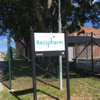
Recipharm divests five Swedish plants
Swedish contract manufacturer Recipharm is selling its facilities in Solna, Strängnäs, Höganäs, Karlskoga and Uppsala OTC Development to US private equity company Blue Wolf Capital Partners.
-

Settlement of cancer allegations against blockbuster drug
French pharmaceutical company Sanofi has reached a principal agreement in the US on around 4,000 of the cases in which its now withdrawn blockbuster heartburn drug Zantac allegedly had caused cancer.
-

”En väldigt uttalad AI-ångest i samhället idag”
AI kommer mer eller mindre bli en självklarhet på framtidens vårdavdelningar. Det menar Max Gordon, läkaren och AI-experten som forskar på nya applikationer vid Danderyds sjukhus.
-

Radioactive tracer to measure effect of drug towards Crohn’s disease
A radioactive tracer developed by Astra Zeneca and the Karolinska Institutet may play a major role for patients with Crohn's disease. That is the belief of Maria Belvisi at AstraZeneca.
-
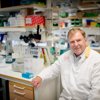
Jan Holmgren to receive award for the development of cholera vaccine
Researcher Jan Holmgren is being awarded for the development of the first effective drinkable cholera vaccine. The award is given by the International Vaccine Institute (IVI) and vaccine company SK bioscience.
-
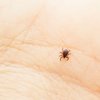
Nyckel till dödlig fästingburen sjukdom hittad av KI-forskare
Det extremt farliga Krim-Kongo blödarfebervirusets väg in i våra celler har identifierats av forskare vid Karolinska institutet – vilket kan bana väg för det första läkemedlet mot sjukdomen.
-

The life science strategy – what the industry wants
The process of updating the national life science strategy has begun at the government’s life science office. According to industry stakeholders, Sweden’s competitiveness, the accessibility of health data and the integration of innovation in healthcare are some of the points that are essential to review.
-
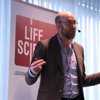
Han utvecklar AI-modeller för cancerdiagnostik
Det finns ett stort behov för tids- och kostnadseffektiv precisionsdiagnostik vid cancer. Det menar forskaren Mattias Rantalainen som arbetar med att ta fram lösningar baserad på artificiell intelligens.
-

”We need compatibility“
Penilla Gunther, founder of Fokus Patient and chair of the European Patient Safety Foundation, hopes that the forthcoming life science strategy will focus on efficient and secure management of patient data and equal access to medicines.
-
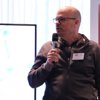
Möte om framtidens diagnostik igång i Stockholm
Labb och diagnostik står på agendan vid ett möte i Life City på onsdagen i Hagastaden.
-

Behandling av prostatacancer får positivt EU-utlåtande
Prostataläkemedlet Xtandi har nu fått ett positivt utlåtande i EU av den europeiska läkemedelsmyndigheten EMA:s rådgivande grupp CHMP.
-

Anna Törner: ”Orphan Designation – the "petite robe noire" of drug development”
It is easy to cling to various regulatory incentives, like orphan designation, and other expedited pathways, without understanding what they truly mean or whether they are indeed right (or wrong) for the current project, Anna Törner writes in a column.
-

Specific proposals and targets top the universities’ desired priorities
What are the universities’ expectations for the update of the national life science strategy? Life Science Sweden posed the question to representatives from Karolinska Institutet and Sahlgrenska Academy.
-

Anna Törner: ”Orphan designation läkemedelsutvecklingens ’petite robe noire’”
Det är så lätt att klamra sig fast vid olika regulatoriska incitament, som orphan designation, utan att egentligen veta vad de innebär och på vilket sätt de kan vara rätt (eller fel), skriver Anna Törner i en krönika.
-
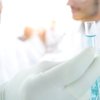
Analys av metaboliter hjälp för att skräddarsy behandlingar
Genom att studera kroppens nedbrytningsprodukter, metaboliter, kan behandlingar bättre skräddarsys för patientens specifika behov och förutsättningar. Det säger Dusan Raicevic som jobbar på företaget Metabolon.
-

Så får du ihop ett CV som imponerar på life science-rekryteraren
På dagens arbetsmarknad är det viktigt att alltid ha ett uppdaterat CV och att skriva ett är inte helt enkelt. Men så länge man har ett konkret mål med sin karriär kan man med enkla medel slänga ihop en resumé, menar karriärcoachen Tina Persson.
-

Forskare närmare att skapa konstgjorda äggceller – ”Väldigt stora risker”
Kan en hudcell förvandlas till ett ägg som kan producera livskraftiga embryon? Nya forskningsframsteg kopplade till tekniken som användes för fåret Dolly kan innebära en revolution inom reproduktionsmedicin, enligt ny studie. Men Niklas Juth, professor i medicinsk etik, är skeptisk.
-

Venom from the deathstalker carries radiopharmaceuticals to the brain
In order to target cancerous brain tumours with radionuclides, the problematic blood-brain barrier must first be crossed. Life Science Sweden has visited a KI researcher who is trialling an unusual approach ‒ using scorpion venom.
-

“Life science is important on a personal level”
From the High Coast to the Government Offices. Jeanette Edblad is a native of Ångermanland, and since September last year, she has been Head and Coordinator of the Government’s Life Science Office.
-

Samuel Lagercrantz: ”Will the Swedish life science strategy be updated with precision?”
What will the Swedish government focus on in the life science strategy that is being updated? And what should be prioritized in the strategy? Life Science Sweden's editor-in-chief Samuel Lagercrantz highlights three areas.
-

“What is important is to create an overview and understanding from different perspectives”
Scientist Jochen Schwenk analyses blood proteins using proteomics to improve our understanding of disease and health. This year, he is moderating the Lab & Diagnostics of the Future event.